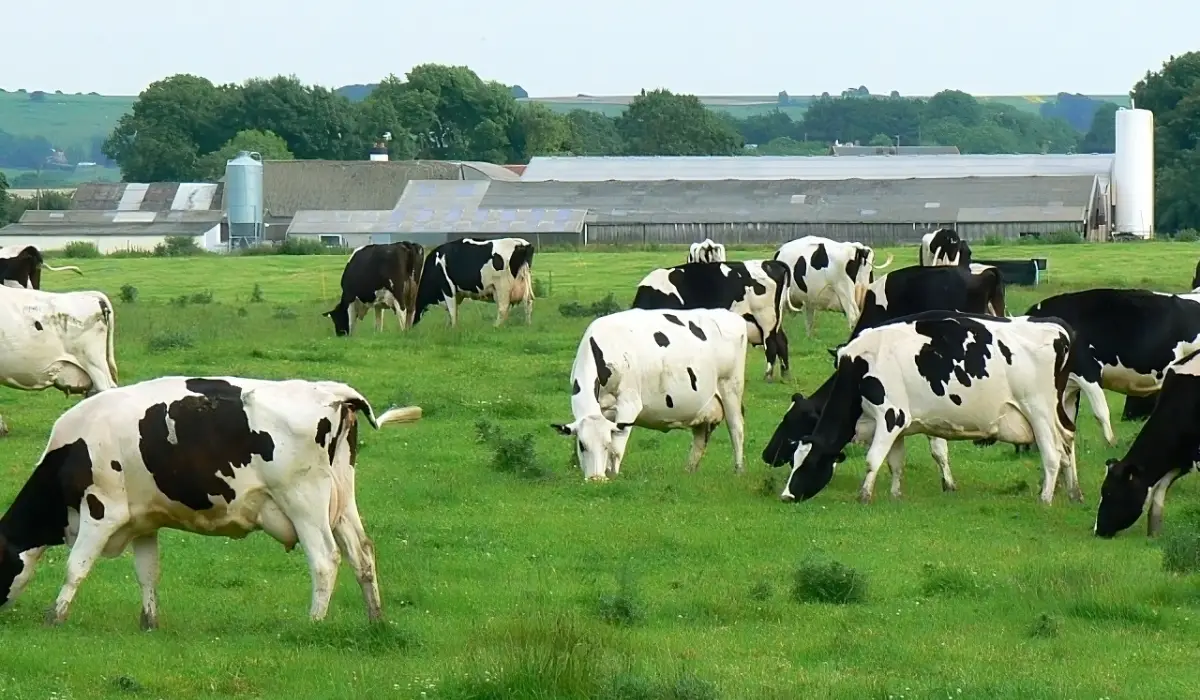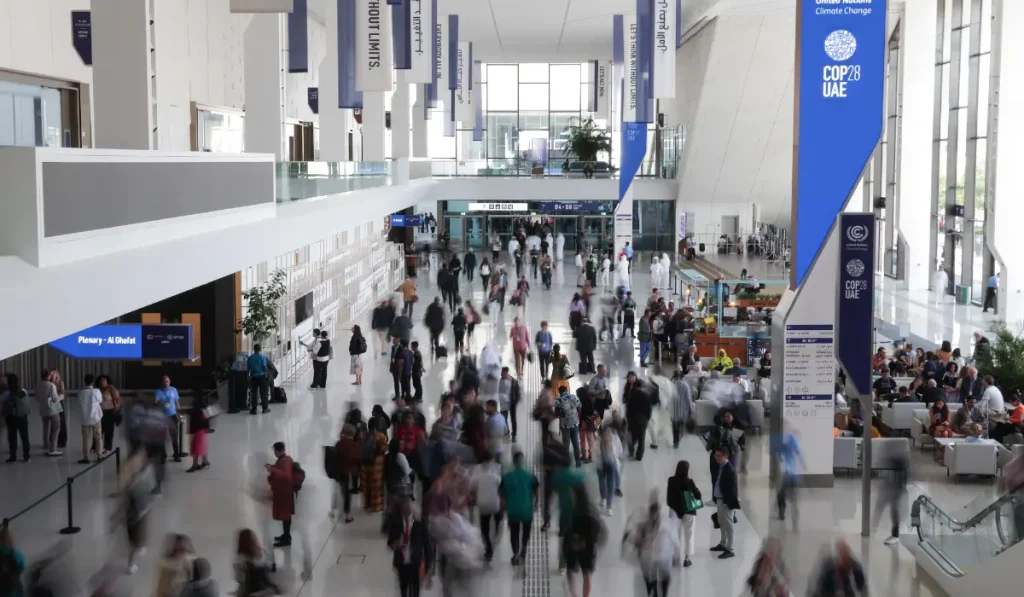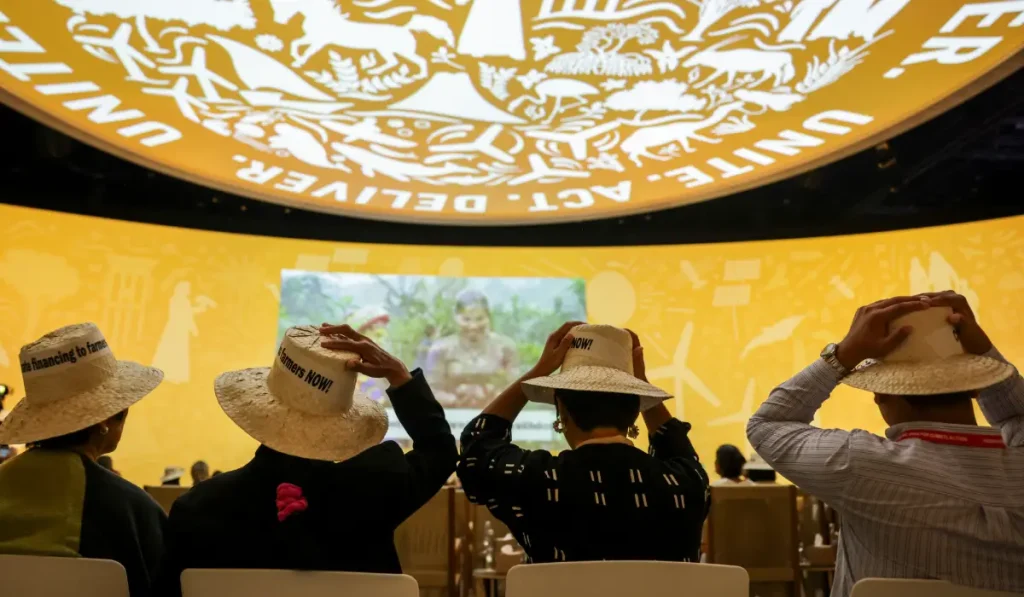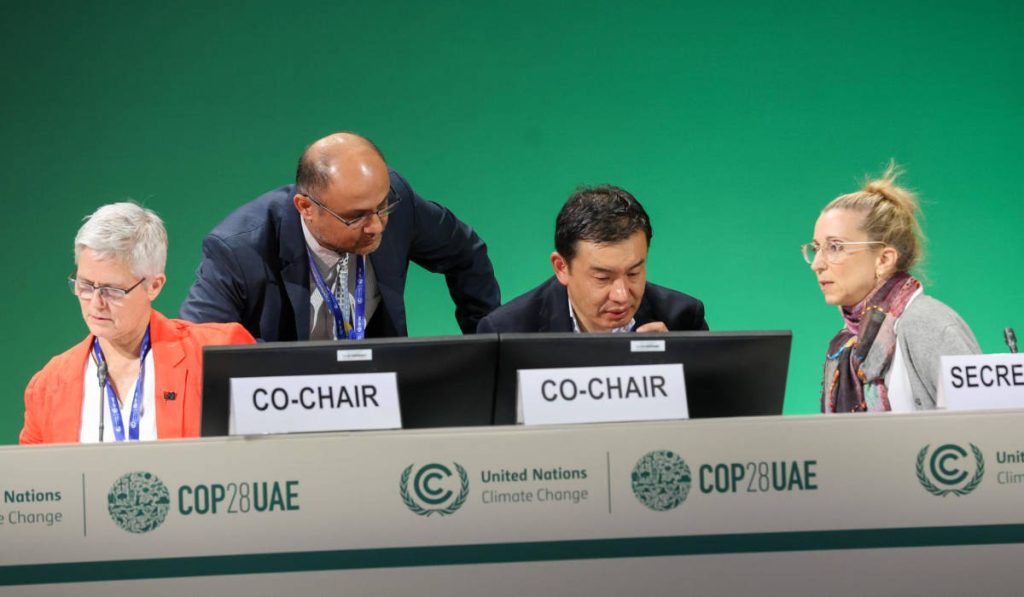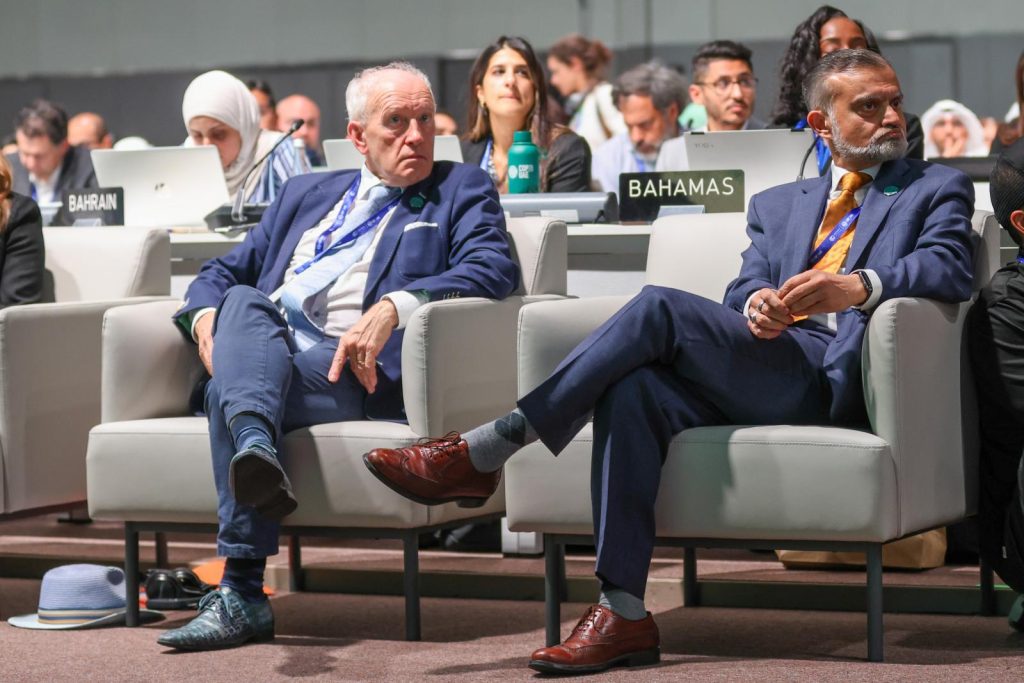For many years food systems have been taboo at annual COPs. Food and dietary preferences are seen as culturally and politically sensitive, and governments have been loath to impose controls on related emissions. The sector, responsible for a third of global GHG emissions, has been in the media spotlight for its environmental and climate impacts. Although cattle do contribute to global emissions, it is mostly the related activities of farmers and processors that are driving global warming, including vegetation and forest clearance to create arable land, reliance on fertilizers derived from fossil fuels, and energy intensive production, processing, packaging, retail sales, and transportation. Food systems are also highly vulnerable to climate change, with farms facing extreme weather, disease and pestilence outbreaks, and temperature variations that threaten outputs.
In response to growing public interest and increasing regulation, lobby groups from agribusiness, particularly the meat and dairy industry, turned out in record numbers at COP28, tripling the number of their representatives from the previous year. The farming sector has been particularly vocal against emissions control measures in the European Union, with German farmers this week protesting against the roll back of tax breaks for diesel, a measure imposed partially on climate grounds. This follows protests in the Netherlands after a court ruling in 2019 on nitrogen emissions. Farmers also took to the streets in Spain and France last year when governments respectively imposed water and pesticide restrictions on their operations for environmental and climate reasons.
The vulnerability of agriculture and food systems has been acknowledged on various occasions within COP decision texts or declarations, however when it comes to emissions, the text has been silent. Food is not typically addressed in the Nationally Determined Contributions of parties to the UNFCCC and Paris Agreement, and the private sector has been lax in adopting voluntary targets. For years it managed to escape the radar of the COP agenda, and typically has only featured in pledges, initiatives, and programmes on the side-lines. One such declaration is the Emirates Declaration on Sustainable Agriculture, Resilient Food Systems and Climate Action, signed at COP28 last year by more than 150 parties. While this was received with much fanfare, it doesn’t meaningfully progress what was decided on several years ago under the COP’s dedicated workstream for agriculture. It is also declaratory in nature and is not formally negotiated text.
Last year however was a small step forward. At COP28 food was mentioned for the first time in a major UNFCCC negotiated text, the Global Stocktake (GST). Food systems feature twice in its preamble and four times under the topic of adaptation. However, it does not feature at all in the mitigation section. The language around “transitioning” in the GST text focuses on fossil fuels and energy systems and makes no mention of mitigation in the food sector. Moreover, the 2030 mitigation targets for methane and nitrous oxide (the agricultural sector is a significant source of both), which had initially appeared in the draft text, were dropped in the final version. The text makes no mention of the need to shift dietary preferences, harmful agricultural subsidies or emissions from the industry. Instead, it only makes an oblique reference to the need to shift to more “sustainable patterns of consumption.” On-lookers were also hoping to see references to the more specific and actionable emissions reduction recommendations in the UN Food and Agriculture Organisation’s (FAO’s) recently released roadmap to transform the food system, but were ultimately disappointed.
Agriculture and food systems are one of the only sectors to have a dedicated work programme under the UNFCCC, named the Sharm el-Sheikh joint work on implementation of climate action on agriculture and food security (SSJW) (formerly the Koronivia Joint Work programme). The group is dialogue and workshop focused, with soft outcomes meant to serve as political signals to countries. But disagreements within it have stalled progress. At COP28, developing countries within the G77 wanted to create a “coordination group” to facilitate implementation of any decisions. The push was understandable since in 2022, countries could not decide what they had learned from six years of workshops (under the ‘Koronivia Joint Work’) and whether to develop a roadmap. Accordingly, at COP28, the G77 group of developing countries want a more formal structure to facilitate implementation. However, developed countries questioned the necessity of a coordination group. A failure to reach agreement meant that the group did not make a formal joint decision at the end of the COP. Instead, the discussion was pushed to next year in an informal note and workshop topics were proposed.
In 2022, talks also stalled on whether the group’s mandate would include a “whole” or “sustainable” food system, including dietary shifts, production and food waste. Countries could not even agree to a workshop on food systems. At COP28, although the informal note does not address how food systems will be dealt with by the group, it does at least include a proposed workshop on “understanding sustainable food systems through climate action”. Given that the informal note has no legal status, it’s unclear whether countries will go ahead with the workshop. Observers and countries have lamented the lack of progress after a whole year of the group’s four year mandate.
Ultimately whilst food was finally introduced onto the plate of a major UNFCCC negotiation text, it was only in the context of adaptation. Measures to reduce emissions have not been addressed either in major decision texts or in the dedicated work group under the COP. To make meaningful progress, it will be critical for countries to actively engage on food systems and progress the work of the FAO within the SSJW, agree on actionable items and reach consensus around mechanisms to implement their agreements.

